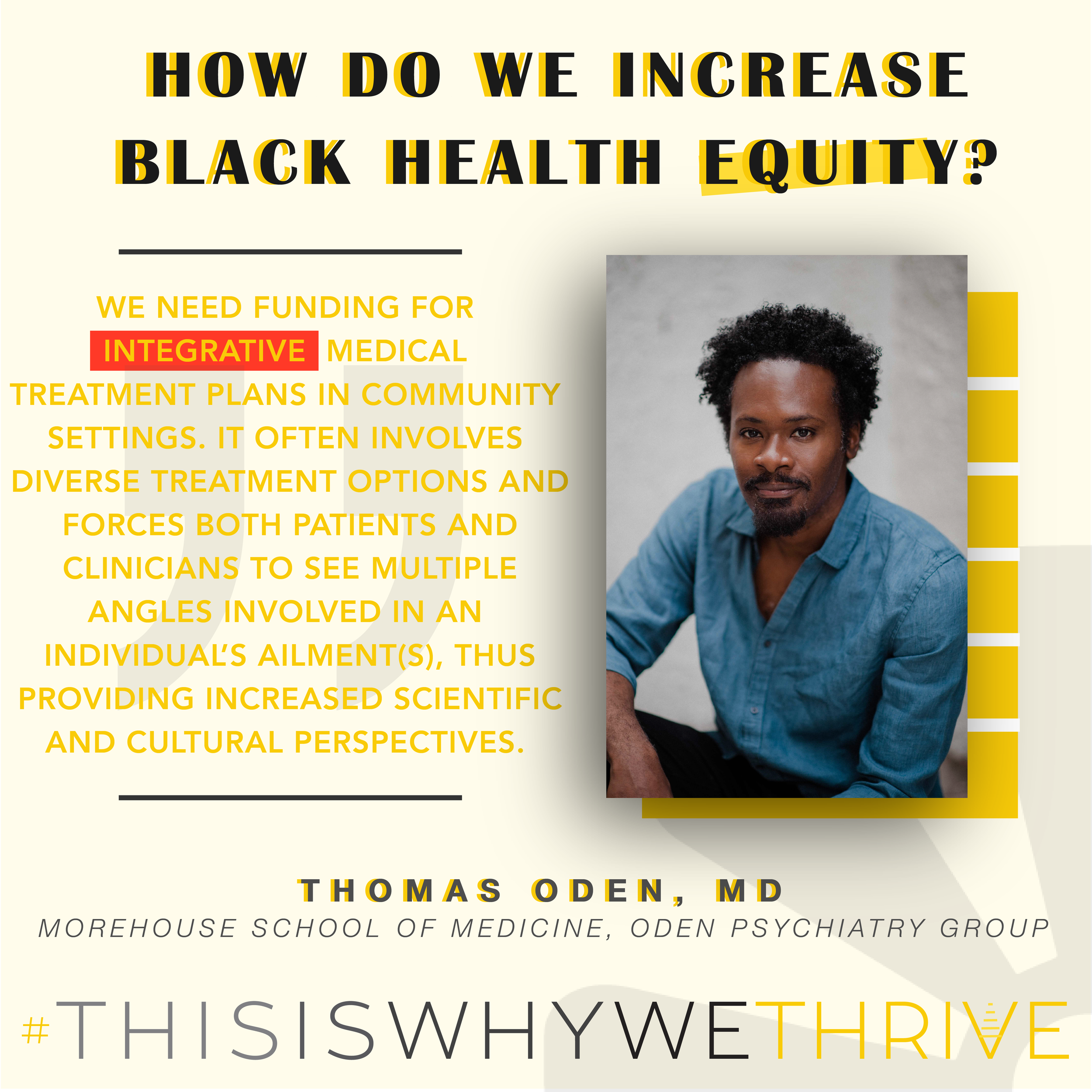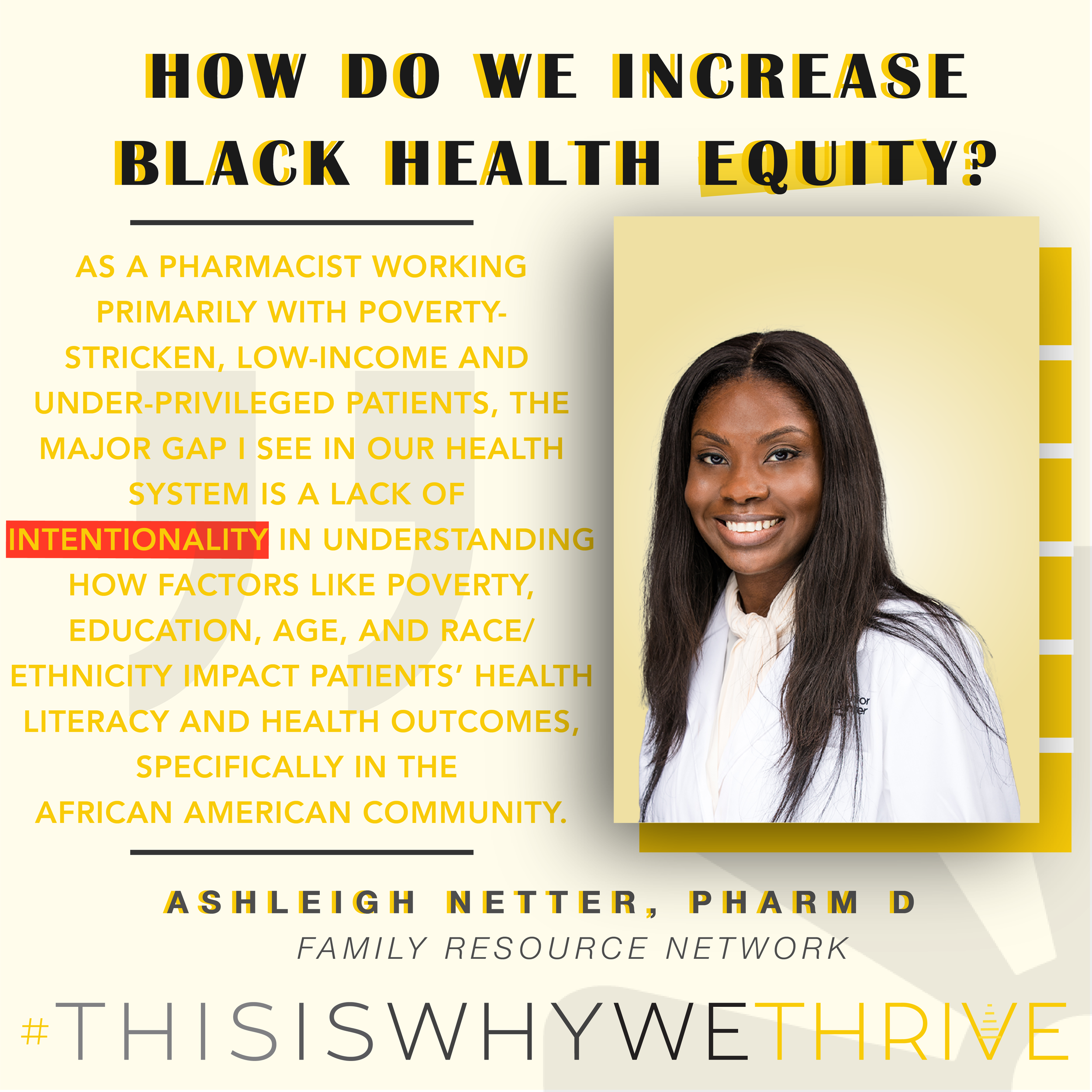Besides raising awareness, one of the goals of this campaign is to identify actionable solutions to increase equity within the US public health system. In order to kick off this process, we’ve asked doctors, public health professionals, administrators and other health professionals to respond to one “simple” prompt:
Describe one change you would make to the US healthcare system to increase equity for Black people.
Here’s what they had to say:
To understand Dr. Fullilove's full vision, click on her image to read her blog.
To understand Dr. Sonaike's full vision, click on her image to read her blog.
To understand Dr. Jefferson Shah's full vision, click on her image to watch a video of her speaking about this issue.

"Equity within a mental health service delivery system can be tricky. My clients are vulnerable, unhoused, and often impacted by foster care, incarceration and health care disparities. Therefore, I work to navigate the journey of recovery by paying attention to the guides that catalyze the journey, which means hiring peer resource specialists who are reflective of clients' individual experiences. An equity initiative within my agency, Southern California Health And Rehabilitation Program (SCHARP), is to have a workforce that is able to rearrange the table of life so that their clients can feast, and to do that, they have to know how to set the table in the first place."
To understand Dr. Anderson's full vision, click on her image to read her blog.

"One of the things I’d like the U.S. to do is look at Health Care as a means of reparations for Black people in America. From the whip to the back to the knee on the neck, who has been more emotionally, physically, and mentally anguished than Black Americans? Quality Health Care—like most essentials—have moved farther and farther away from distressed Black communities, so we need funding to bring back neighborhood clinics. Funding should also be made available for professionals to identify behavioral health issues in institutions of early childhood education, to get ahead of physical and mental health issues that plague teens and adults later on in majority Black Communities. An effort like this attached to meaningful effort to repair the wrongs could be a step in the right direction!"
To understand Dr. Netter's full vision, click on her image to read her blog.

"We need funding for integrative medical treatment plans in community settings. It often involves diverse treatment options and forces both patients and clinicians to see multiple angles involved in an individual’s ailment(s) thus providing increased scientific and cultural perspectives."

""As physicians, it is imperative that we recognize that it is not only overt racism, but also implicit bias, which can have a profound impact on the way that we care for our patients."





